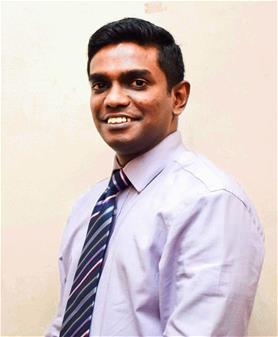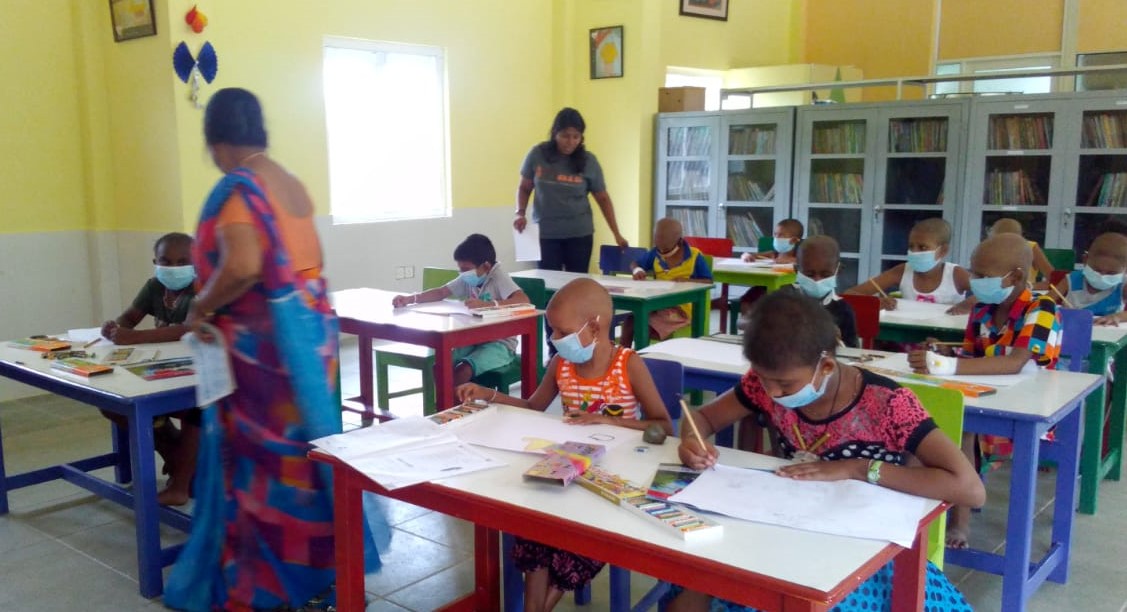February 15, 2020 is World Childhood Cancer Day. Every year, more than 300,000 children under 19 years old are diagnosed with cancer around the world. Approximately 8 in 10 of these children live in low- and middle-income countries where their survival rate is only 20%. In Sri Lanka, around 750 children are newly diagnosed with cancer every year; almost all of these children are treated at the pediatric department of the National Cancer Institute, Sri Lanka (NCISL). The spectrum of patients presenting to NCISL ranges from blood cancers, most commonly Acute Lymphoblastic Leukaemia, to a wide range of solid tumours, like cancers of the brain, bone, liver, kidneys and eyes.

To learn more about childhood cancer in Sri Lanka, WHO Sri Lanka interviewed Dr Sanjeeva Gunasekera, a Pediatric Oncologist at NCISL. Dr Sanjeeva shared that Sri Lanka has three main advantages that contribute to the successful delivery of cancer care for affected children.
Dr Sanjeeva also noted that there are several areas where Sri Lanka can endeavour to improve.

It is well established that childhood cancers are highly curable and that investing in care and treatment is a cost-effective investment for countries. WHO Country Office Sri Lanka looks forward to continuing our partnership with the Ministry of Health and Indigenous Medical Services and other relevant partners, such as NCISL, to improve care and research related to childhood cancer in Sri Lanka.

To learn more about childhood cancer in Sri Lanka, WHO Sri Lanka interviewed Dr Sanjeeva Gunasekera, a Pediatric Oncologist at NCISL. Dr Sanjeeva shared that Sri Lanka has three main advantages that contribute to the successful delivery of cancer care for affected children.
- Free access to healthcare, which significantly reduces the cost affected families need to bear and increases access to needed services.
- High literacy rates in the country, which results in better health-seeking behaviours, less treatment abandonment, and better adherence to medical advice.
- Well established training programs in childhood cancer for doctors and nurses, which lead to competent treatment teams.
Dr Sanjeeva also noted that there are several areas where Sri Lanka can endeavour to improve.
- Sri Lanka should establish a robust registry which captures epidemiology, treatment details, and outcomes of childhood cancers. He noted that this is a priority, as it lays the foundation for many other important interventions.
- With limited resources, it is imperative to prioritize cost-effective, high-value interventions such as infection control and improving supportive care services like intensive care.
- Improve psychosocial support systems for affected children and their families. The psychosocial well-being of children and their caregivers is often not given the attention it deserves due to other stressors on the system, such as a high patient load limiting provider time and the understaffing of critical support staff. Although some services exist, psychological support for children and carers, assistance with reintegrating children to schools and communities after treatment, etc. need to be improved.
- Increase high-quality, home-grown research. Dr Sanjeeva stated that he believes locally-relevant, evidenced-based interventions are the way forward in developing a successful paediatric oncology program in Sri Lanka. We have unique problems and therefore need unique solutions; this is particularly important for quality improvement projects. This is the case not only for childhood cancers but for all cancers in general. Recognizing this fact, Sri Lanka’s College of Oncologists formed the Sri Lanka Cancer Research Group (SLCRG) to facilitate, coordinate, and provide logistical support for cancer research. SLCRG considers childhood cancer a priority area.
- Sri Lanka needs a comprehensive Childhood Cancer Policy. A policy ensures that childhood cancer care in Sri Lanka is comprehensive, well-coordinated, and sustainable.

It is well established that childhood cancers are highly curable and that investing in care and treatment is a cost-effective investment for countries. WHO Country Office Sri Lanka looks forward to continuing our partnership with the Ministry of Health and Indigenous Medical Services and other relevant partners, such as NCISL, to improve care and research related to childhood cancer in Sri Lanka.
